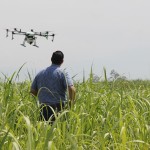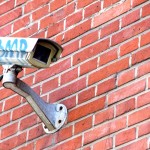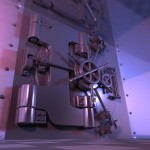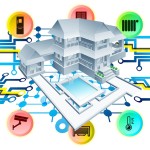Drones For Farming
Drones can be helpful in many different situations since they can monitor and even deliver tangible items to areas with limited access. In farming especially, drone imagery can provide a close, more in-depth look at crops, without spending excessive time on the fields. In fact, farmers have been using drones for years now.
Because farms are often located in remote areas where powerful computers and networks are few and far between, the shift from centralized computing to edge computing is gaining traction. Aside from agriculture, edge computing is coming into play in many other industries as well. In general, this entails light processing on the periphery of the network, or the edge, as close to the originating source as possible. The end result is faster speeds with less strain on the core network.
With this advanced technology comes more precise, data-driven agriculture. Drones are a much faster, cost-effective way of combing through the field than obtaining images from satellites or planes. These days, drones can be launched and controlled with an app and come equipped to guide itself through the field and take detailed pictures in various lighting environments. Specialized software can then analyze all the data collected to pinpoint problems (ex. dead plants, poor drainage), allowing farmers to address these issues in a prompt manner.
For example, in conjunction with Fieldscanner (the latest product from software vendor DroneDeploy), farmers are able to view their crops in real-time, while the drone is still flying. Via a wireless link, computing takes place on board the drone and on the user’s Apple device.
Previously with DroneDeploy, an expensive drone-based modem and LTE connection was necessary to send photos to the cloud for instant analysis. Now with Fieldscanner, the images are sent to an Apple device in real-time. The need for internet connection is unnecessary thanks to the processing power of both the drone and the mobile device.
Aside from being able to address issues promptly, immediate feedback allows farmers to quickly move on if the area appears fine. This saves network capacity since a more detailed reading is unnecessary. In addition, farmers can upload the data to the computer or a cloud service and produce detailed 3D imagery.
While this drone software is still in beta testing, it is indicative of where the future of drones and farming is headed. What are your thoughts on farming with drones? Share with us on Facebook, Google+, Twitter, LinkedIn, and Pinterest.
Visit SecurityCamExpert.com to browse our inventory of top quality security cameras and CCTV surveillance systems or call us at 888-203-6294 today!
Safeguard Your Security Cameras
These days, most of our devices are connected thanks to the Internet of Things. While this can make things more convenient for us, it can also leave us vulnerable to hackers.
There have been many public stories about cyber attacks and spying, from hacked baby monitors to internet outages. And while we may never see an end to cyber criminals, this proves that we can never be too cautious.
These unfortunate hacks can occur from unsecure Wi-Fi connections, open devices (no passwords), or malware attacks. Luckily, there are ways to combat attacks and minimize our risks.
Heed these cyber security tips that may apply to security cameras, webcams, as well as baby and pet monitors.
- Keep Your Internet Private
Employ a full-service security suite for your internet and keep it up to date. Use a strong, unique password and encryption to protect your network.
- Create Secure Passwords
Always change the default password that comes with your wireless networks and any of your devices. When choosing a password, remember to incorporate numbers, capital letters, and, when allowed, multiple punctuation marks. You should also try to use 12 digits, and avoid names, places, or anything that can easily be guessed. To ensure you’ve created strong and secure passwords, use a password checker.
- Keep Software Up-To-Date
As stated previously, keep all your devices and software updated as these help to patch any known or found vulnerabilities that allow hackers to gain access. Although this simple step can easily be overlooked, it is important to stay on top of these updates.
- Cover Cameras When They Are Not In Use
If your camera indicator light goes on without your permission, you can assume that your computer has been compromised. However, just because the light is off, you cannot assume that your camera is safe. Researchers have found that hackers can infiltrate and turn on webcams without activating the indicator light.
To err on the side of caution, keep your cameras covered. There are different types of patches, stickers, devices, and other products on the market that you can use. However, for an immediate fix, masking tape will suffice.
- Don’t Click That Suspicious Link!
If there is any uncertainty, do not click the link. Only download attachments or click on links from people you know and trust. If you were not expecting a message or attachment from a trusted person, be sure to check with them before opening or downloading anything.
- Avoid Using Unsecured Wi-Fi
Public Wi-Fi networks are prone to hackers so avoid them when you can.
- Check Your Camera Log
If your security system permits (most do), check the IP addresses that have accessed your cameras. If you find any suspicious IP addresses on your log, be sure to change your access codes right away and notify your security company.
- Manage Cameras Settings
Network connected security cameras allow you to remotely monitor your cameras via an app or a website. If you do not need this feature, turn it off.
- Consider A Separate Network
It may be beneficial to have one network for your phone and computers and another network solely dedicated to your security systems and other monitors.
Being an educated consumer will minimize your risk of becoming a victim. These security precautions promote safe use of personal technology and can go a long way for your cyber security. Connect with us on Facebook, Google+, Twitter, LinkedIn, and Pinterest to share your own cyber security tips.
Need quality security cameras and CCTV surveillance equipment? Look no further than SecurityCamExpert.com! Call 888-203-6294 to schedule a free* site survey, request a quote, or inquire about our installation services.
Strengthen Your Door Security
When it comes to security, we often think of things we can add to our homes to protect ourselves. Things like security cameras and alarm systems can help bring peace of mind, but first and foremost, your home should be structurally sound and durable. Namely, as a main point of entry, our front doors should possess the ability to withstand various weather conditions and considerable force. Learn more about the different types of doors and which type best suits your needs.
Wood
Wood doors are often made of cherry, pine, maple, or fir and are known for their ability to endure different environmental elements. Their visual appeal can be tailored to your liking thanks to specialized craftsmanship and an assortment of wood stains. And depending on how they are made, these doors can provide varying levels of protection. Solid wood doors are made up of several different pieces of wood while solid core doors are made of one solid slab of wood. While solid wood doors are affordable, they lack the strength and heft of solid core doors. Solid core doors are dense and heavy and can provide a superior degree of defense against forced entry. The downside for wooden doors is that they will start to warp over time.
Steel
Steel doors are arguably the most secure type of doors as they offer the greatest protection against intruders. However, dents, scratches, and chipping paint is quite common, and if these issues are not dealt with in a timely fashion, the structural integrity of the door may be compromised. When it comes to costs, they can be less expensive than fiberglass and solid core doors.
Fiberglass
Fiberglass doors are growing increasingly popular with homeowners thanks to their affordable cost, low maintenance, and benefits. Of the others, fiberglass doors are the most durable, energy efficient, and weather resistant. Since they do not warp, dent, or rust, they offer the best benefits of wood and steel doors without the major drawbacks.
Additional security measures for your front door include high-quality, high-grade, deadbolt locks along with door jamb reinforcement. Door sensors are a smart investment as well. They can alert you when a door opens when you’re home, or trigger an alarm while you’re away.
How do you secure your points of entry at home? What type of doors do you prefer? Share with us on Facebook, Google+, Twitter, LinkedIn, and Pinterest.
Find the best prices on quality security cameras and CCTV surveillance systems at SecurityCamExpert.com. To learn more about our products and installation services, please call 888-203-6294.
Make Your Smart Home Safer
Smart homes are meant to simplify your life and increase your home security. Unfortunately, if not implemented properly, smart home devices can end up sharing too much of your information. Keep your home safe from hackers with these smart strategies.
Keep It Simple
Investing in all the newest smart devices is enticing, but when it comes down to it, less is more. Think about it – the more devices you install, the more chances hackers have to target your home.
Carefully consider what you really need. Choose the devices that will have the most meaningful impact on your daily life in a positive way. That way you get the most value for your investment while limiting your digital entry points.
Know Your Weak Points
Although hackers can be a nuisance, they also help to make smart homes safer. They allow manufacturers to address weaknesses and vulnerabilities, thus enhancing smart home devices. In addition, there is security software that you can purchase and install to add an extra layer of protection to your system and devices.
Think Analog, But Better
As research suggests, a home that appears occupied is less of an easy target than one that appears empty. When you leave for vacation, you may leave a light on or enlist timers to make it appear as if someone is home, but smart light bulbs can handle the work for you.
Smart light bulbs are easier to use than traditional timers, allowing you to control them remotely and offering other useful features. Depending on the one you choose, features can include smart sensors which will activate in response to open doors or doorbells. This can act as an effective deterrent to burglars.
Don’t Forget The Basics
Despite employing smart home devices, basic security measures should not be ignored. Remember to lock your doors and windows, refrain from announcing vacations or getaways on social media, and be sure your internet connection is encrypted and secure. Forgetting these things can leave your home and belongings susceptible to intruders.
In terms of internet connections, without encryption, your smartphone and smart devices are useless. Because these devices require internet connection, without encryption, you are leaving your home open to hackers who may access your system, change your settings and physically and digitally access your home.
As smart homes continue to improve, they will be able to offer more advanced features along with possible machine learning, providing a more personalized smart home experience. And although the future of this technology is promising, it also brings forth more risks. Combing the use of this advanced tech, as well as basic security tools can provide the optimal security solution.
In addition, the need to educate the consumer is crucial. Before investing in these technologies, be sure that you know what potential threats and risks exist and how to combat them.
What do you think the future holds for smart home security? Feel free to share your thoughts on Facebook, Google+, Twitter, LinkedIn, and Pinterest.
For traditional security cameras and CCTV surveillance systems, visit SecurityCamExpert.com. Please call 888-203-6294 for more information on our site surveys and security camera installation services.



